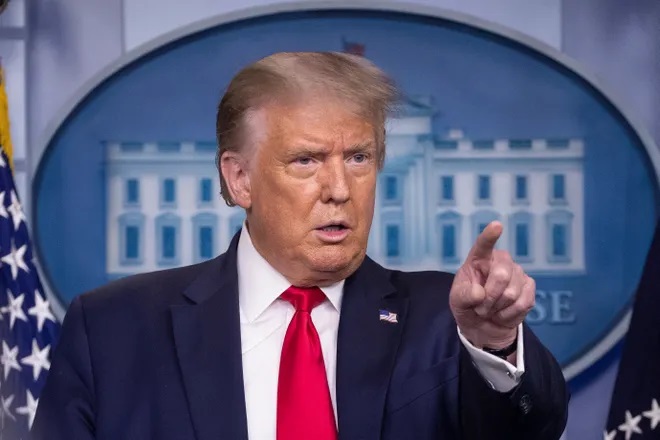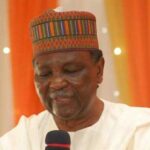Following what was described as the tensest presidential election in the United States in more than a century, which culminated in the defeat of arguably the most controversial US President, Donald Trump, the dynamics behind his fall explained why he couldn’t evade it.
As an aspirant to the US presidency in 2016, and though an elitist and indeed wolfish capitalist to the core, Donald Trump had successfully adopted the façade of a populist politician using populist rhetoric that resonated with a significant segment of particularly the lower and middle-class conservative White Americans.
He will go down in history as not only the first US president from outside the establishment but also the first anti-establishment populist US president.
In other words, he would be remembered by both admirers and foes as a US president who challenged the establishment and had his own way on many occasions, earning himself the anger of a considerable section of the country’s political elite, corporate businesses, the media and even the Hollywood entertainment industry, which has produced tens of movies against him.
After all, no sooner had his presidency begun than most of the most influential media organisations in the United States including CNN, The New York Times, The Washington Post, etc. adopted Trump-bashing as their obsession ending up literally campaigning against him in the recently-concluded election. While in his relentless retaliation, he dubbed them “Fakes News”, and has since then never missed a chance to dismiss them in his attempt to discredit them.
Interestingly, Donald Trump never got along with even his Republican Party establishment. Since 2016, when he surprisingly emerged as the Republican Party’s presidential candidate, many high-profile party members, who had all along tried unsuccessfully to foil his emergence, have left the party.
Many more had similarly, albeit equally unsuccessfully, opposed his nomination for the just-concluded presidential election; and even after his nomination, tens of other senior party members e.g. John Bolton, Colin Powel and many others of their calibre declared their opposition to his reelection bid.
Likewise, many nonpartisan statesmen, former senior diplomats, retired high-ranking military, security, intelligence officers and others had all opposed him.
Also, many otherwise Republican voters voted for Joe Biden in what’s known in Nigerian political context as “anti-party” making Trump perhaps the highest-profile victim of “anti-party” in the history of US politics.
In short, there was an unprecedented elite gang-up against Donald Trump; a gang-up that put aside partisan differences to frustrate his reelection bid. Obviously, no politician could have prevailed over a gang-up of such influence.
Besides, as expected, African-American and other non-white American communities who have been affected the most by Trump’s controversial sabotage of the Affordable Care Act otherwise known as Obamacare, which he systematically bastardised following his failure to get the Act repealed, voted massively against him.
Trump’s persistent criticism of the Act was widely viewed as a show of blatant insensitivity to the peculiar plight of disadvantaged Americans most of whom come from those communities. After all, his characteristic racist utterances and insinuations, and xenophobic immigration policies had already earned him stinking notoriety among them.
On a lighter note, that explains why the euphoria that erupted in many cities and towns across the US following the announcement of the result was particularly passionate in those communities.
Having said that, Donald Trump has performed incredibly well for the US economy as a whole, even though the economic impacts of the COVID-19 pandemic and his poor handling of it did indeed further undermine his reelection chances.
Though US foreign policy and its international engagements hardly influence the voting behaviour of the average American voter, he isn’t absolutely free from the underlying influence of foreign interests, which have always had interests in who becomes the US president, and have always discreetly pursued their respective interests in this regard.
Also, though Trump’s “America First” foreign policy and his protectionist economic policies have reduced US foreign involvement, which has saved a lot for the US economy, the Washington establishment sees it as an inadvertent undermining of the US global influence especially in the face of the growing influence of China and Russia on the world stage, and the growing ambitions of countries with geopolitical expansionist agendas like Iran and Turkey.
The establishment is more interested in maintaining the superiority of the US global influence at any cost, as opposed to Donald Trump who only approaches issues from the perspective of a typical Wall Street elite capitalist.
Now, as Donald Trump’s drama-laden presidency comes to end, he will leave the White House without necessarily conceding defeat voluntarily. And just as he has always been controversial, he isn’t likely to lead a quiet and controversy-free post-presidency life like other former presidents.
In any case, observers would eagerly look forward to reading his memoirs; after all, being that recklessly blunt, overly insensitive and less pretending compared to mainstream politicians, his memoirs would almost certainly turn out to be the most revealing hence most controversial.

 Join Daily Trust WhatsApp Community For Quick Access To News and Happenings Around You.
Join Daily Trust WhatsApp Community For Quick Access To News and Happenings Around You.


